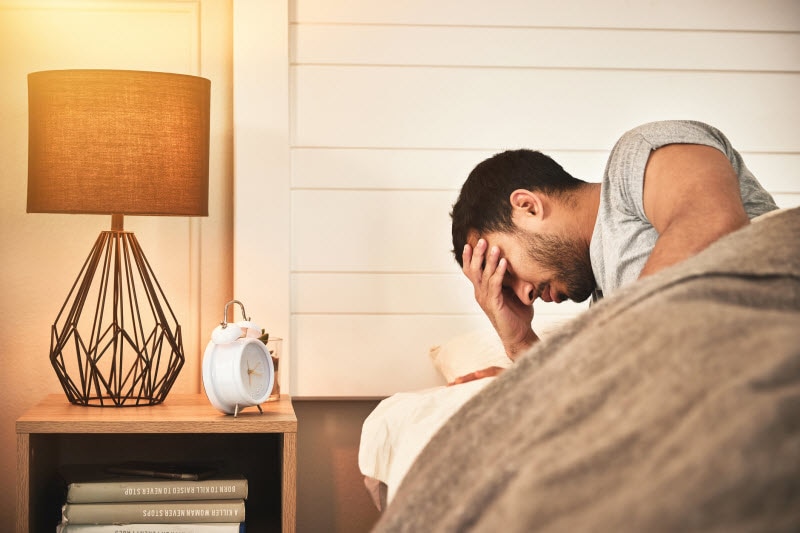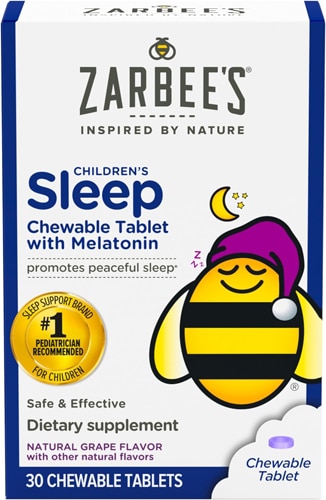[vc_row][vc_column][vc_column_text]In a past life, I spent several years going to bed next to someone who had sleep apnea before we knew he had it. It was troubling.
Night after night, I witnessed something like this: snort, snort, wheeze, long snore into gasp. Silence. The cycle repeated until it was time to greet the day.

The loud and erratic noises constantly woke me up, making it stressful on top of troubling (eventually I’d retreat to another room). But it's more stressful for the person with sleep apnea because they stop breathing, over and over.
Every day, my sweet ex felt fatigued, even if he had caffeine — like I said: troubling. At the tail end of our relationship, he was diagnosed with sleep apnea and medically treated for it. Several years later, I’m sad to share, he died of cardiac arrest.
Sleep apnea increases the risk of sudden cardiac death, but I can’t unequivocally attribute his passing to it. His profession, a career firefighter then fire chief, came with cardiovascular risks, as well.
What is sleep apnea?
Sleep apnea, also called sleep-disordered breathing, is common, according to the National Heart, Lung, and Blood Institute. Luckily, most people with sleep apnea have
a mild version.
On a basic physiological level, sleep apnea makes your breathing stop or get extremely shallow for a few seconds or even minutes. This can happen every minute, sometimes even more frequently. If someone stops breathing for at least 10 seconds, at least five times an hour, they'll be
diagnosed with sleep apnea, according to the American College of Cardiology.
Types of sleep of sleep apnea
The two most prevalent types of sleep apnea are:
Obstructive sleep apnea Obstructive sleep apnea happens when your upper airway
gets blocked repeatedly or narrows too much, essentially collapsing while you sleep. Your tonsils could be to blame, for example. This is the most common type of sleep apnea.
Central sleep apnea Central sleep apnea happens when your brain doesn't send the signals it should to your airway and the muscles that allow you to breathe. Some health conditions can cause it, including brain infections, stroke and issues with the cervical spine. So can certain medications, narcotic painkillers and high altitude,
according to the National Institutes of Health.
Who’s at risk of getting obstructive sleep apnea?
- Obstructive sleep apnea, particularly severe sleep apnea, is more widespread in men than women.
- It can appear in women who are postmenopausal due to hormonal changes that can affect airway muscles.
- It’s possible to develop sleep apnea at any age, but your risk increases when you’re older because as you age fatty tissue can build up in your neck, among other factors.
- You're more at risk if your jaw is small (micrognathia) or pulled back (retrognathia) or you have enlarged tonsils and/or adenoids.
- Finally, a huge risk factor is obesity for a number of reasons, including that fat deposits in the upper respiratory tract can narrow your airway.
What are symptoms of sleep apnea?
You're drowsy most of the time
A telltale sign is waking up groggy and feeling sluggish all day. Every time sleep apnea halts your breathing, your brain
wakes you up — so you'll breathe. The downside is that you lose uninterrupted restful sleep.
Your memory is shot
You need deep sleep to protect your brain and to form and retain memories. When you don't get it, your concentration and recall suffer.
Your breathing and snoring pattern raises attention
Almost everyone snores a little at some point. Snoring does not mean you have sleep apnea. But loud snoring, choking or gasping for air are symptoms of sleep apnea, especially if they happen throughout the night, night after night.
You jerk suddenly while asleep
These sudden movements, which often happen when you're gasping for air, might awaken you. Otherwise, a bedmate is the best person to observe this.
You wake up often throughout the night
Not everyone with sleep apnea wakes up enough to be conscious of it. But if you keep awakening, it's smart to consider why it's happening.
Lifestyle changes that can help alleviate sleep apnea
Don't mess around with sleep apnea. Severe sleep apnea harms your health, straining your brain and
cardiovascular system and putting you at risk for heart disease, high blood pressure and
sudden cardiac death, to name a few. Be sure to consult a doctor if you think you might have it.
Barring anatomical issues, some lifestyle changes might help alleviate sleep apnea:
Maintain a healthy weight
Being at a
healthy weight is the best way to prevent sleep apnea.
Manage any existing health conditions,
If you have high cholesterol, high blood pressure or
Type 2 diabetes, keep them in check.
Clear your nose and keep it open
Nasal strips can help, but only for mild sleep apnea (keeping your nostrils open won't address issues in your throat, should you have them).
Sleep on your side
Your throat is more likely to collapse when you sleep on your back. That's why when your beloved snores you nudge them to roll onto their side and then they stop making noise.
Avoid the bad three
Limit or eliminate alcohol and caffeine, and don’t smoke. Alcohol relaxes your throat muscles, and
smoking can increase inflammation and fluid retention in your upper airway.
Medical intervention to manage sleep apnea
Again, consult a doctor as soon as you can if you think you might have sleep apnea. Often a mouthpiece, surgery or breathing devices such as a CPAP (continuous positive airway pressure) machine are needed.
The most accurate way to know if you have sleep apnea is to do a
sleep test in a lab. The study measures all sorts of things, including brain waves, blood oxygen levels, heart rate, breathing and eye and leg movements. My dearly departed was subject to one.
He also had his tonsils removed and medical work done in his throat to help him breathe more easily. I know it helped. Perhaps if he’d been diagnosed much earlier, it would have helped for longer.[/vc_column_text][/vc_column][/vc_row][vc_row][vc_column][vc_text_separator title="Featured Products" border_width="2"][vc_row_inner equal_height="yes" content_placement="middle" gap="35"][vc_column_inner width="1/3"][vc_single_image image="179077" img_size="full" alignment="center" onclick="custom_link" img_link_target="_blank" css=".vc_custom_1729861158136{padding-right: 7% !important;padding-left: 7% !important;}" link="https://www.vitacost.com/trulabs-sleep-nighttime-drink-mix"][/vc_column_inner][vc_column_inner width="1/3"][vc_single_image image="179075" img_size="full" alignment="center" onclick="custom_link" img_link_target="_blank" css=".vc_custom_1729861184691{padding-right: 7% !important;padding-left: 7% !important;}" link="https://www.vitacost.com/aurora-nutrascience-ultra-liposomal-sleep-support"][/vc_column_inner][vc_column_inner width="1/3"][vc_single_image image="179076" img_size="full" alignment="center" onclick="custom_link" img_link_target="_blank" css=".vc_custom_1729861208841{padding-right: 7% !important;padding-left: 7% !important;}" link="https://www.vitacost.com/gaia-herbs-sound-sleep-120-vegan-liquid-phyto-caps"][/vc_column_inner][/vc_row_inner][/vc_column][/vc_row]
 The loud and erratic noises constantly woke me up, making it stressful on top of troubling (eventually I’d retreat to another room). But it's more stressful for the person with sleep apnea because they stop breathing, over and over.
Every day, my sweet ex felt fatigued, even if he had caffeine — like I said: troubling. At the tail end of our relationship, he was diagnosed with sleep apnea and medically treated for it. Several years later, I’m sad to share, he died of cardiac arrest.
Sleep apnea increases the risk of sudden cardiac death, but I can’t unequivocally attribute his passing to it. His profession, a career firefighter then fire chief, came with cardiovascular risks, as well.
The loud and erratic noises constantly woke me up, making it stressful on top of troubling (eventually I’d retreat to another room). But it's more stressful for the person with sleep apnea because they stop breathing, over and over.
Every day, my sweet ex felt fatigued, even if he had caffeine — like I said: troubling. At the tail end of our relationship, he was diagnosed with sleep apnea and medically treated for it. Several years later, I’m sad to share, he died of cardiac arrest.
Sleep apnea increases the risk of sudden cardiac death, but I can’t unequivocally attribute his passing to it. His profession, a career firefighter then fire chief, came with cardiovascular risks, as well.



